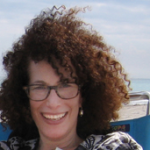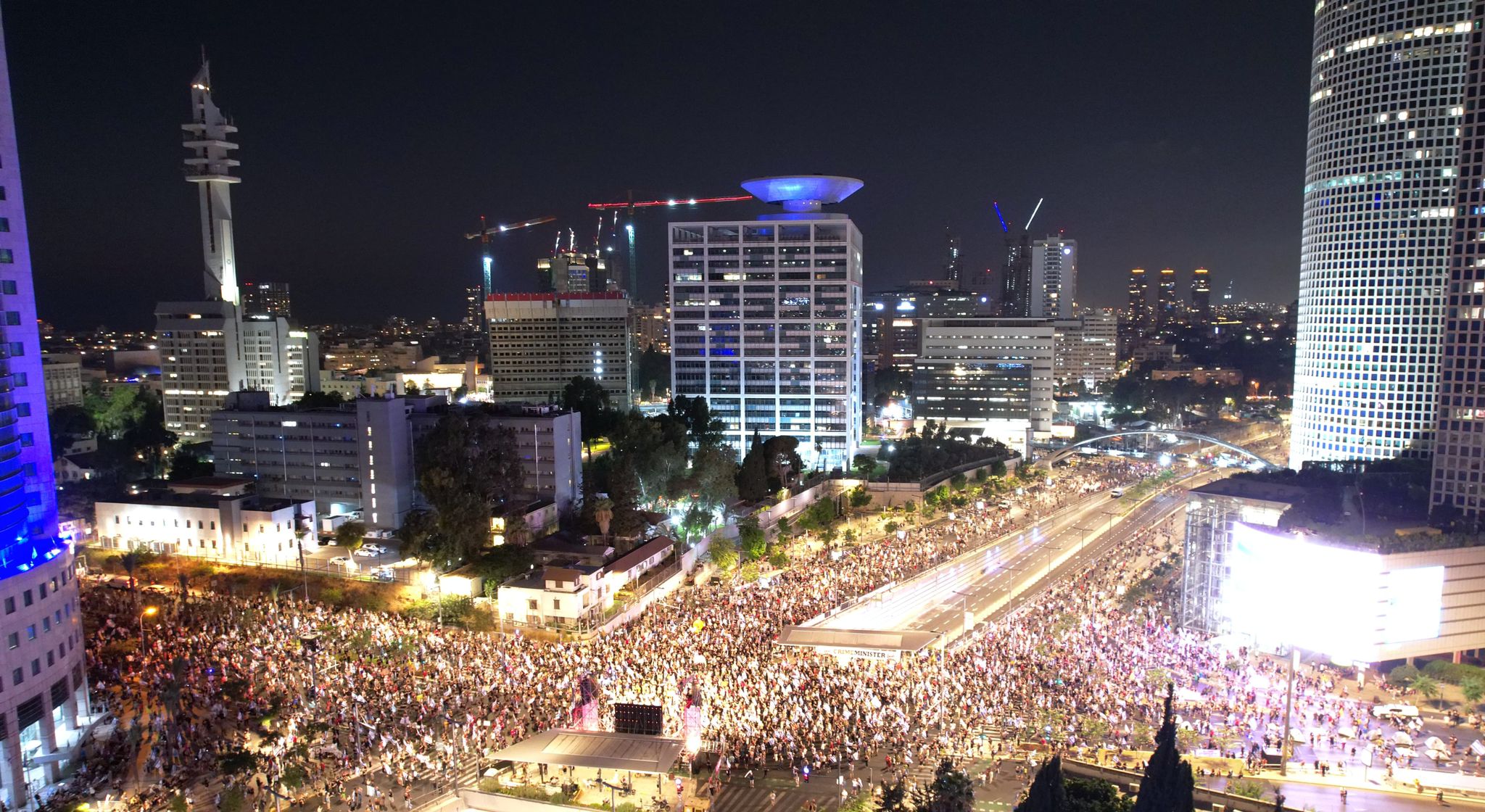On 7 October 2023, the armed wing of Hamas and several Palestinian groups launched coordinated attacks from the Gaza Strip into southern Israel, resulting in the deaths of 1,200 people. There is evidence of rape and violence against women according to the BBC and Human Rights Watch. Thirty-eight children were killed and 42 children were abducted. Some remain in Gaza to this day, their fate unknown.
Retaliation to the attacks on 7 October have led to a deadly war in Gaza that has amassed a death toll of 41,000 including 16,500 children. Conflict is now spreading across the region, as Israel has intensified strikes against Hezbollah on its northern border in Lebanon this week.
How have Israeli and Jewish philanthropy responded to tragedy in Israel and ensuing catastrophe in Gaza? A largely unreported Jewish philanthropic response has donated $2 billion to relief efforts while the Jewish diaspora struggles with increasing antisemitic attacks. Reportedly, a fifth of the Israeli population has engaged in sustained volunteering as part of a huge civil society response.
To understand more, we share reaction and analysis from Jewish and Israeli philanthropists, community organisations and infrastructure bodies, hearing in their own words about October 7 and how it has impacted them.
Two billion dollars and counting
 Andres Spokoiny, CEO of the Jewish Funders Network (JFN), writes about the response of Jewish philanthropy to the attacks on October 7th — both in short-term crisis response and long-term work in civil society both inside and outside of Israel.
Andres Spokoiny, CEO of the Jewish Funders Network (JFN), writes about the response of Jewish philanthropy to the attacks on October 7th — both in short-term crisis response and long-term work in civil society both inside and outside of Israel.
Headquartered in the US with an office in Tel Aviv, JFN is an international community of over 3,000 Jewish philanthropists and foundations with combined annual grantmaking of over $6 billion.
According to Spokoiny, supporting the Jewish community around the world is an important part of the work of its members. He writes: ‘The war has triggered the worst wave of antisemitism since the Second World War. Even before Israel responded to the massacre, we saw demonstrations which many in our community viewed as anti-Jewish. In the US, antisemitic acts have increased by 140 percent. They have doubled in the UK and tripled in France.’
Everyone is suffering. We must commit to nonviolence
 Annie Berdy is an American philanthropist and Jewish member of the Forward Global network of funders.
Annie Berdy is an American philanthropist and Jewish member of the Forward Global network of funders.
She writes: ‘I started funding programmes that guide individuals on both sides of the conflict to come to see themselves in the ‘other’ and to move from adversary to ally. That evolved to include initiatives that employ practices to influence viewpoints such as Middle East Entrepreneurs of Tomorrow (MEET). MEET brings Palestinian and Israeli school-age participants together in a three-year cohort focused on technology and entrepreneurship. Those three years of studying and creating together transform their concepts of each other rippling out to their respective families and communities.
But I realised I needed to go further.’
On finding connection through listening
 Adrien Cohen is a French tech entrepreneur, investor and philanthropist based in London. His philanthropic work through his foundation SCI Ventures focuses on innovative therapies for people living with paralysis.
Adrien Cohen is a French tech entrepreneur, investor and philanthropist based in London. His philanthropic work through his foundation SCI Ventures focuses on innovative therapies for people living with paralysis.
He writes in Alliance about his work developing listening circles to bridge divides: ‘The idea was simply to listen to the other’s perspective. To avoid falling into media divisions and the hallucination machine of social networks. Share our feelings, rediscover a little of the lost empathy.
‘There were five of us for the first listening circle. We are now more than 50… The method is simple. We meet in a private room in central London, twice a month. Each person speaks as authentically as possible. We listen with intent. The idea is not to have long geopolitical debates but rather to express feelings, whatever comes to us in the moment. In a caring and safe environment. Sometimes political debates emerge anyway; we welcome them, and some feel able to respond. Others prefer to listen. Everything stays confidential.’

Protesters in Tel Aviv demand early elections and a deal for the release of the hostages held by Hamas in Gaza in August 2024. Photo by Amir Goldstein shared courtesy of Orni Petruschka.
On philanthropy and civic protest in Israel
 Orni Petruschka is a leading Israeli tech entrepreneur, philanthropist and activist. He writes in Alliance about civil society in Israel and how social movement groups mobilised after the attacks on October 7. These groups adopted a stance of mutual aid, supporting victims including families of the bereaved, families of hostages, and families of people who had been evacuated or wounded — but they also transformed into resistance groups, with the aim of radical political action.
Orni Petruschka is a leading Israeli tech entrepreneur, philanthropist and activist. He writes in Alliance about civil society in Israel and how social movement groups mobilised after the attacks on October 7. These groups adopted a stance of mutual aid, supporting victims including families of the bereaved, families of hostages, and families of people who had been evacuated or wounded — but they also transformed into resistance groups, with the aim of radical political action.
‘[Israeli philanthropists] saw the need to support and participate in massive protests. Funds supporting the civil struggle for democracy flowed to the Resistance HQ at a sufficient rate, enabling it to carry out all the activities that required monetary assistance. The main sources of funds were: crowdfunding […], significant donations from major Israeli donors […], and donors from abroad, who cared about Israel’s democracy’.
A nation mobilised
 Lee Moser is one of the founders of Brothers and Sisters for Israel, the largest civilian aid organization in Israel with more than 80,000 volunteers. She is also the Managing Partner of AnD Ventures, an Israeli early-stage VC. Prior to establishing AnD Ventures, Lee was the Chief of Staff to Israeli Ambassador Michael Oren in Washington, DC, a Senior Consultant at BlackRock, and a partner at iAngels VC.
Lee Moser is one of the founders of Brothers and Sisters for Israel, the largest civilian aid organization in Israel with more than 80,000 volunteers. She is also the Managing Partner of AnD Ventures, an Israeli early-stage VC. Prior to establishing AnD Ventures, Lee was the Chief of Staff to Israeli Ambassador Michael Oren in Washington, DC, a Senior Consultant at BlackRock, and a partner at iAngels VC.
Moser writes in Alliance about the work of Brothers and Sisters for Israel and the growing space for civic aid.
‘With no time to lose, on October 8th, we began organising. What started in my house quickly turned into a full-scale operation as we sent messages across every WhatsApp group, rallying people from all over the country. Leaning on the Brothers in Arms network, within days, 150,000 volunteers were on the ground, doing whatever they could to help. People from all walks of life stepped up – children, the elderly, and even those from the tech ecosystem, many of whom had been protesting with us just weeks before. By the end of the first week, we were running operations out of a full warehouse, coordinating 40 specialised teams that provided psychological support to evacuees, organized cyber experts using AI to track clues about the kidnapped hostages, and managed logistics for countless deliveries of food, medical supplies, and gear.’
The views expressed by the authors do not necessarily represent the views of Alliance.



Comments (0)